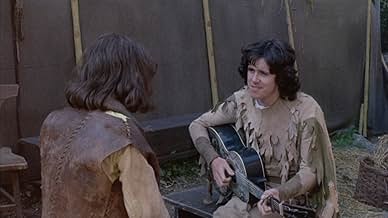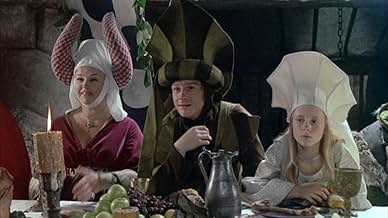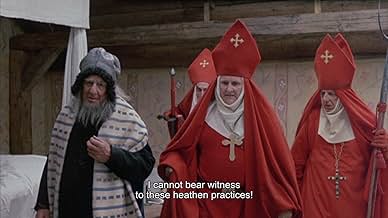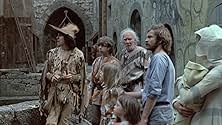The original 303-line poem "The Pied Piper of Hamelin" was published by Robert Browning in 1842, and wow it's a doozy--thoroughly disturbing to the core and meant to be so. How we ended up with a cute bedtime fable is beyond me, but then again, in the original Sleeping Beauty, the Prince rapes her in her sleep. So.
Here in 1972, we get an excellent adaptation of the tale which retains much of the poem's disturbing nature but with a slightly softened tone, offering glimmers of goodness and hope despite the backdrop of 13th Century inhumanity, greed, religious murders and child marriages. Yea, did I mention this is not for kids?
What offsets the disturbing story is largely the wonderful performance and gentle voice of Donovan who plays the titular Piper. Whereas in the original poem the piper was sort of a mysterious opportunistic rogue, here we get a mysterious character who is more of a wise, savior figure. The songs he sings (written by Donovan) are not just beautiful to the ear, but the lyrics are tranquil and reassuring.
This contrasts brilliantly against the disturbing story which is about a small German village that is besieged not only by the plague but, even worse, besieged by a consortium of corrupt politicians, priests and landowners who would tax their own grandmother's false teeth. It gets even more disturbing as the plot revolves around a baron's shifty son who is preparing to wed an 11-year-old-girl so he can collect the dowry and fund his violent exploits, and all the while his father the baron is squeezing blood out of the villagers so he can build a cathedral in his own honor--much to the drooling approval of the local bishops. This is heavy stuff. This is not a children's fable. But it's a brilliantly done film.
Not only are the acting performances riveting, from Donald Pleasance as the tyrannical baron to John Hurt as his loathsome son to Michael Hordern as Melius the scholar who is the sole voice of reason, but the camera style is thoroughly engaging as it follows the action gracefully for long stretches without a cut. If you watch this film, notice how the camera moves through the scenery almost like a silent character in the film, and this draws us tighter into the drama in a voyeuristic way. The sets are enormous and authentic, and as I mentioned the music is first rate.
On a subtle note, the film also attempts to nudge history back toward the truth. In the original poem, as well as for centuries, it was commonly accepted and taught that rats were the cause of the Black Plague, but only in recent years have we learned that the plague was spread by people basically drinking water out of their own sewers (go figure). And in this adaptation, the rats are not shown to be the vile "vermin" which Robert Browning accused them of being, but instead they are shown to be more like symbolic warnings of what will befall man if man doesn't clean up his act.
There's a beautiful, sobering moment where the piper talks to a rat and says something like "I know you must treat each other much better than men treat each other" and that short scene summarizes the spirit of this film. Yes, it's disturbing, yes it shows the atrocities and cruelty that humans inflict upon each other, but there's a subtle undercurrent that tells us wisdom will eventually prevail. Will it? I dunno, nearly 50 years after the film's release we're still waiting.


















